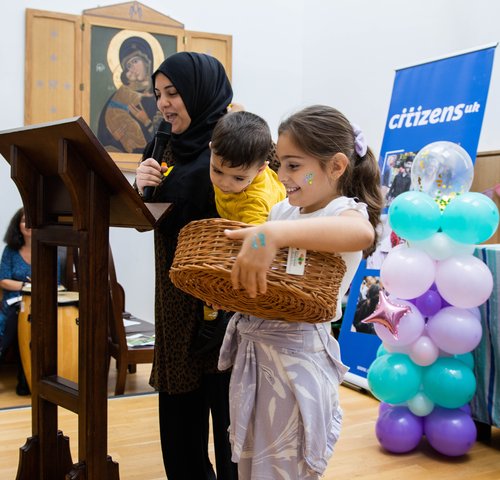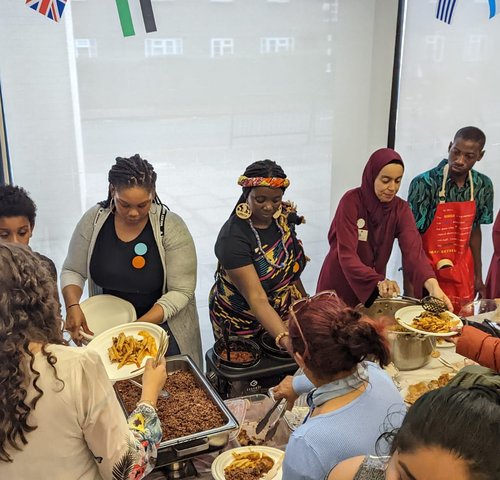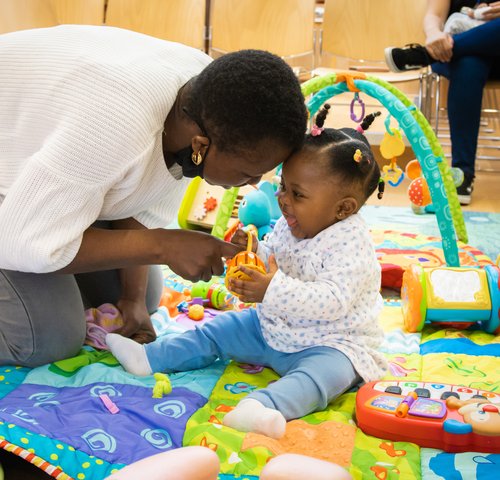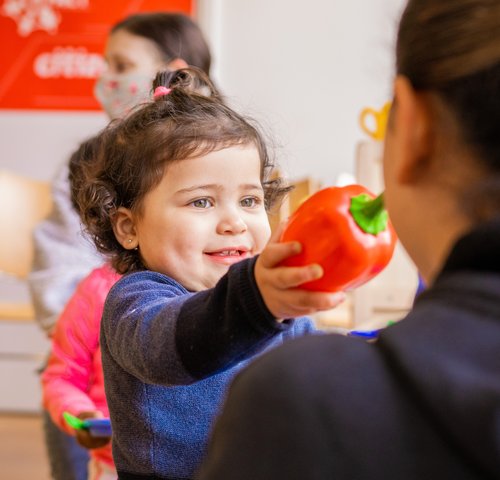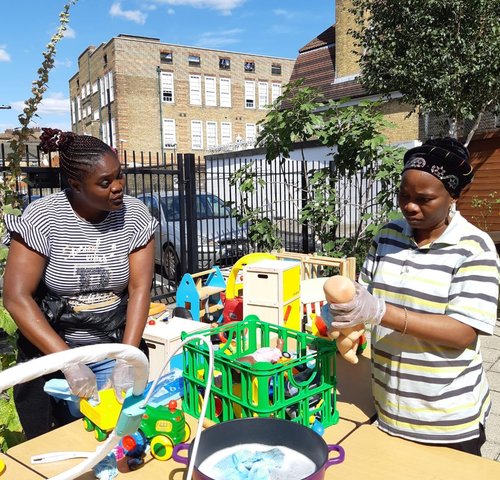More than words, Why Book Sharing matters
More Than Words: Why Book Sharing Matters
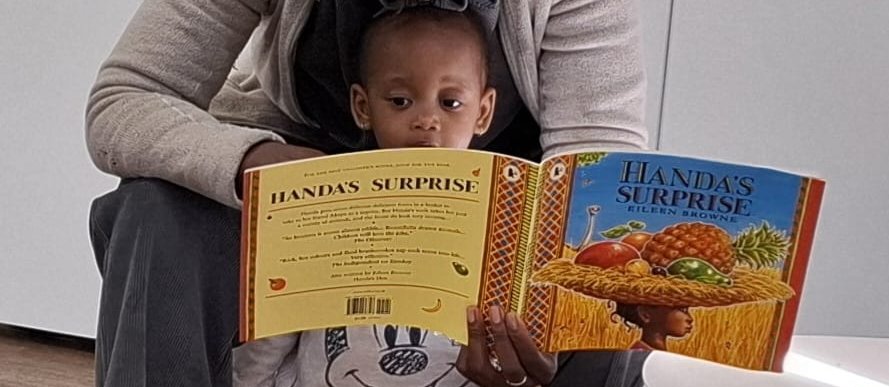
At Parent Action, we believe in the power of everyday moments; and book sharing is one of the simplest, most meaningful ways to support your child’s development while building connection.
Only ingredients needed are care, connection, and presence. Book sharing is one of those simple, everyday practices that brings all three together.
You don’t need to wait until your child can talk or sit still to start reading with them.
In fact, the joy of sharing books can begin the day your baby is born.
A Simple Way to Connect, Grow, and Thrive
What is Book Sharing?
Book sharing is an interactive, playful way for parents and children to explore books together; especially picture or wordless books. It’s not about reading every word or getting to the end of the story. It’s about tuning in to your child, following their curiosity, and letting your shared attention lead the way.
You might point at a picture, name something your child notices, or pause to wonder out loud: “Why do you think the bunny looks surprised?”
These small moments make a big difference.
As one mum shared during a recent listening session:
“What I look forward to most at MumSpace is the warmness of the group.”
That word — warmness — stayed with us. Because book sharing holds that same warmth: a gentle, joyful invitation to connect.
Why It Matters
When children are active participants, not just passive listeners, their brains light up. Book sharing helps to:
- Boost language and communication skills
- Strengthen memory, focus, and emotional development
- Build confidence and creativity
- Foster a love for books and learning
- Deepen the parent-child bond
Research shows that the way adults talk with children during book sharing really matters.
When we ask simple questions — like how a character might be feeling or what might happen next — it helps children make sense of the story and builds the thinking skills they’ll use later in school.
“The nature of book-sharing discussions is of key importance to how well children are able to then derive meaning from, and make sense of concepts of the world of the life happening around them".
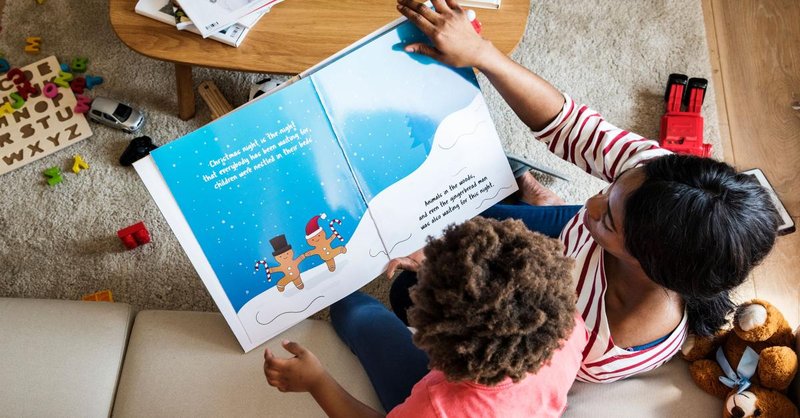
Asking simple questions about feelings, intentions, or surprises in the story helps children learn to make inferences — a key skill for later comprehension and academic success.
Start Early: Tips for Everyday Book Sharing
You can begin book sharing from the day your baby is born. Your voice — whether reading, chanting, or singing — is soothing, familiar, and joyful.
Here are some tips we love to share at MumSpace:
When to share books:
- As part of your daily rhythm — before bed, after lunch, during quiet time
- When you're waiting in queues or travelling
- When your child is unwell or needs comfort
How to share books:
- Sit somewhere cosy (a lap is perfect!)
- Let your child lead — choose books, turn pages, point at pictures
- Keep it short if they lose interest, that’s okay
- Use expression, play with voices, and reread favourites
- Involve siblings if you like, it becomes a shared ritual
And perhaps most importantly: let them see you love books too.
Read for yourself, visit your local library, and start a small home library with stories that matter to your family. A library card is a beautiful gift for any child.
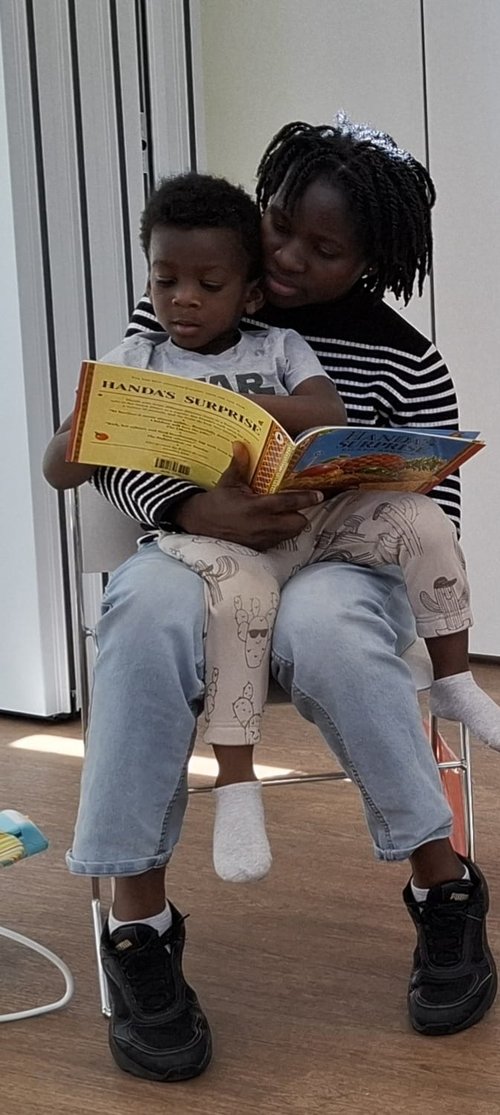

Book-Sharing for Connection
A course for parents of 2–4 year olds offering research-based techniques to engage children through shared stories.
Over time, something quiet and powerful grows between a mother and child who share books together.
It begins in the rhythm of a nursery rhyme. In the way a mother points to a picture and whispers, “Look at the bear — what do you think he’s feeling?” It’s in the child’s giggle, their wide eyes, their small hands turning the page with wonder.
With each shared story, a bond is deepened — and so is the child’s love for language.
These moments do more than build vocabulary. They build a sense of being seen, of being listened to, of belonging. Through book sharing, a child learns that their voice matters — their questions are welcomed, their imagination valued.
- And over time, that child begins to carry words like tools in their pocket:
- To express.
- To ask.
- To dream.
- To connect.
- To make sense of the world around them.
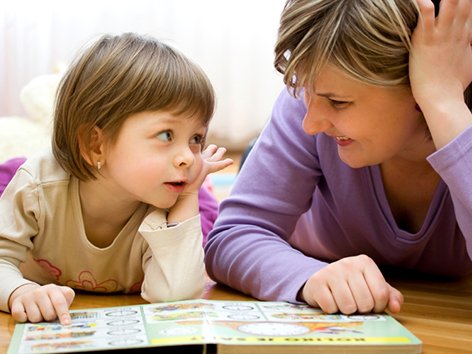
Reflection:
it’s about how deeply you show up. It’s about presence over perfection.
It’s about the small moments: a glance, a pause, a page turned slowly because your child asked a question that mattered to them.
These are not just activities — they’re acts of care.
And when we look back, it’s often these moments: quiet, ordinary, repeated;
that hold the real story of how relationships are built, how language is rooted in love, and how confidence takes its first, brave shape.
